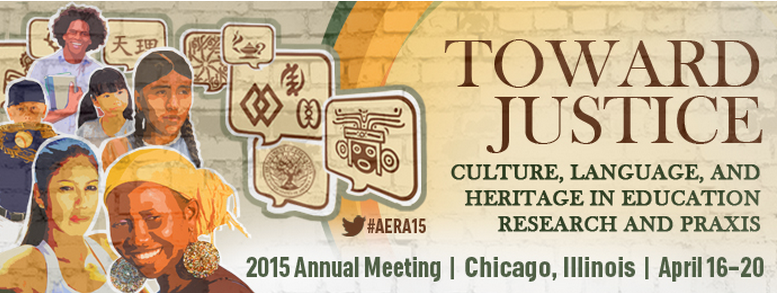More than 70 University of Florida College of Education faculty and graduate students were among the 14,000 scholars from around the world who converged on Chicago April 16-20 for the 2015 annual meeting of the American Educational Research Association to examine critical issues of education research and public policy.
The AERA annual meeting, featuring 2,600 sessions, is the largest gathering of international scholars in the field of education research. More UF education faculty and graduate students, from multiple disciplines, attend AERA’s annual meeting than any other professional gathering. The UF contingent included 41 COE faculty members and 31 graduate and postdoctoral students in education.
The massive AERA event is a hotbed of innovative, research-based ideas about teaching and education issues and trends. This year’s conference theme was “Toward Justice,” examining how culture, language and heritage in education praxis, research and policy can change the world—toward more justice.
UF presentations included pertinent topics such as:
- The promise of black studies in teacher education
- Bullying and disability status
- Women’s scientist identity formation: an undergraduate research mentoring program
- Does athletic success increase campus crime?
- “The Parents are Locked Out”: Barriers to successful teacher-family engagement
- Developing social-emotional vocabulary through storybook reading
- Teaching English language learners: from teacher prep to teaching practice
- Social interaction in computer-supported, collaborative problem solving
- Minority administrators at community college in Florida
The busiest COE faculty attendees were Walter Leite (research and evaluation methodology), Ester de Jong (ESOL/bilingual education), Bernard Oliver (educational leadership), and Albert Ritzhaupt (education technology)—each participating in five presentations. Doctoral student Olivia Soutullo (school psychology) is involved in four presentations.
For a complete listing of all presentations by UF education faculty and advanced-degree students, visit http://bit.ly/1DXa57D.
